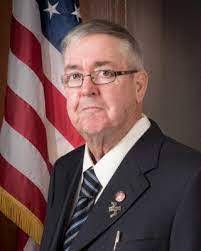
Al McGinnis would like to see a little more equity amongst those receiving services in the City of Batavia.
And the City Councilman has proposed establishing a group of a few fellow council members and citizens to make it happen.
“My idea, council president, city manager, is that we form a group of three council people, and two to three people from the outside skilled in finance, to get together, and I’d like you to be the spokesman as council president, and we’ll decide how we will approach revenue enhancement,” McGinnis said during council’s business meeting Monday. “My idea is to look at individuals and organizations that currently do not pay property tax at all, and are nonexempt status, not to pay property tax but to pay a fee to reside in the city to help cover police, fire, DPW, overall. I’m not asking for a fortune, just asking for a fair share, some sweat equity from those individuals who use those services and rely on them."
According to Tax Exempt World, there are 209 tax-exempt organizations listed for the City of Batavia, though not all of them have a physical address listed.
Those nonprofits would have paid a user fee, for example, to help offset expenses of last year’s extra $296,220 in the three-year police contract, the $800,000 for a new E12 fire department pumper, or the total $3,038,830 for police personnel expenses, plus snowplowing, road maintenance and water treatment upkeep expenses.
Councilman John Canale agreed with McGinnis about the idea, adding that “it’s always been a concern of the public” about a lot of tax-exempt organizations, such as nonprofits and religious entities, not paying for costly city services.
“And can we look at possibly have them pay to compensate for the services that they do use,” Canale said. “I think it’s worth exploring, I think it’s a great idea.”
Council President Eugene Jankowski Jr. also agreed, and said that he would be available for what City Attorney George Van Nest carefully termed a “work group,” since it could not be an official committee of council members.
Van Nest also said that once there’s more concrete information for what the group wants to implement, it would have to be reviewed, per New York State standards, because there may be certain restrictions involved.
“We will come up with the ideas and review it with legal and make sure what we can do and can’t do,” Jankowski said.
